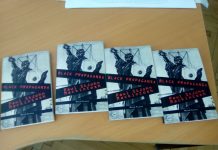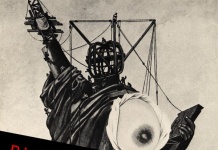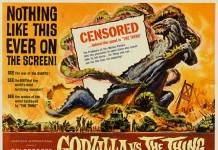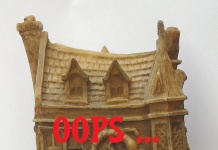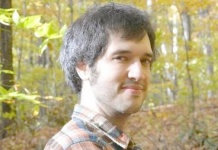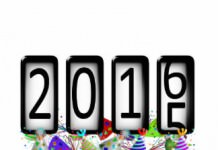Veteran British horror writer Ramsey Campbell has written a piece for Nightmare Magazine, “The H Word: H for Honesty,” which follows on naturally from my earlier post on Simon Strantzas and his writings about the genre. And Campbell calls for a clear, unapologetic commitment to the genre by authors, instead of using euphemisms like dark fiction, dark fantasy, the fantastic, the weird tale, etc. “By espousing the adjective I’m also joining the tradition of writers who have given it a positive significance,” he asserts.
 Part of the attraction of his piece is a brief history of the actual use of the word “horror” in book titles, anthologies, genre categorization, etc., from the publication of The Horrors of Oakendale Abbey in 1797 onwards. Interestingly, according to his timeline, the terminology of the weird tale actually runs the introduction of horror as a mass-market category very close, and perhaps was even more pervasive than horror for a long time. According to Campbell, “.1920 looks like the year of that rebirth [of horror as a book jacket category]—specifically, the first American edition of Maurice Level’s Tales of Mystery and Horror—but this was the only sight of it for most of the decade.” The first issue of Weird Tales, meanwhile, appeared in 1923, and from then on, H. P. Lovecraft, Clark Ashton Smith, Robert E. Howard, Robert Bloch, August Derleth, and others, filled its pages with – well, according to the masthead, weird tales.
Part of the attraction of his piece is a brief history of the actual use of the word “horror” in book titles, anthologies, genre categorization, etc., from the publication of The Horrors of Oakendale Abbey in 1797 onwards. Interestingly, according to his timeline, the terminology of the weird tale actually runs the introduction of horror as a mass-market category very close, and perhaps was even more pervasive than horror for a long time. According to Campbell, “.1920 looks like the year of that rebirth [of horror as a book jacket category]—specifically, the first American edition of Maurice Level’s Tales of Mystery and Horror—but this was the only sight of it for most of the decade.” The first issue of Weird Tales, meanwhile, appeared in 1923, and from then on, H. P. Lovecraft, Clark Ashton Smith, Robert E. Howard, Robert Bloch, August Derleth, and others, filled its pages with – well, according to the masthead, weird tales.
This isn’t to pick holes in Campbell’s argument, by the way: merely to point to the complexity of the debate about what a horror story or weird tale actually is. Take Arthur Machen, for instance. If H.P. Lovecraft’s assertion in his 1927 essay Supernatural Horror in Literature -“the oldest and strongest emotion of mankind is fear, and the oldest and strongest kind of fear is fear of the unknown. These facts few psychologists will dispute, and their admitted truth must establish for all time the genuineness and dignity of the weirdly horrible tale as a literary form” – then where does this leave a Machen tale like “A Fragment of Life” or even “The White People,” when if there is anything fearful, it’s conveyed with such a subtle sense of unease that an inattentive reader might miss it. And yet these stories are obviously contiguous with the overtly horrible tales like “The Great God Pan” or “The Novel of the White Powder.” Maybe it’s more about the unknown than about fear of it.
That said, Campbell’s completely right in his conclusion: “be proud to write horror and say that you do. I am.” Uncertainty about what is going on in a certain type of horror/fantasy/dark fiction story shouldn’t be taken as doubt and embarrassment about the actual value of that type of tale. The genre can sometimes give far more than frissons, and dip far more deeply into the abyss than a fairground roller-coaster ride. When you’re not writing something horrible, you’re not writing horror. But when you are, embrace it.


















